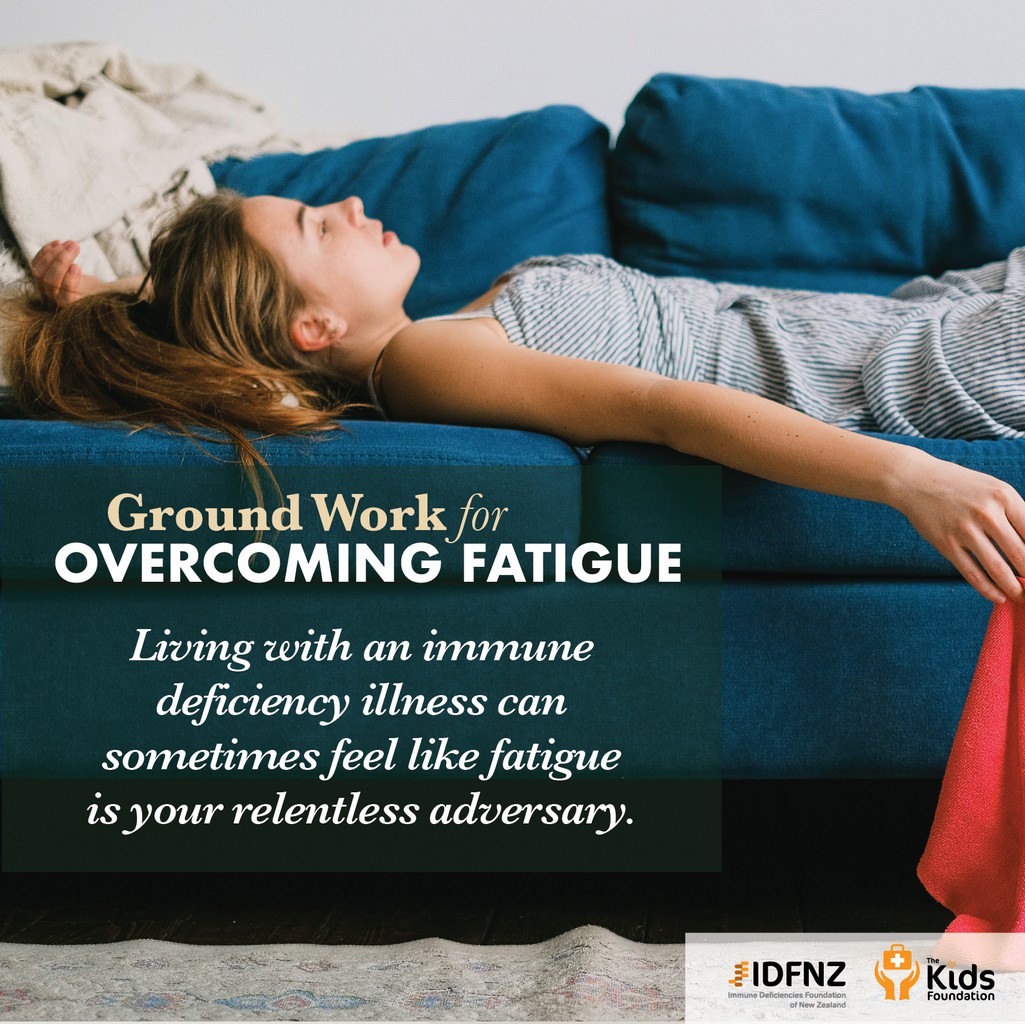Groundwork for Overcoming Fatigue - Understanding Immune Deficiency and Fatigue
Wed April 2nd 2025

Living with an immune deficiency illness can sometimes feel like fatigue is your relentless adversary.
You’ve probably felt it. It’s more than drowsy eyes in a tiresome meeting. It’s more than a yawn after dinner, as you finish up the dishes for the day. It’s fatigue. A quiet thief of vitality, a relentless companion that drapes itself over your weary shoulders, turning vibrant days into trudging marathons. It's more than mere tiredness; it's a constant drain on your physical, emotional, and mental reserves. It often creeps in subtly yet stamps its mark in a profound and negative way.
Waking up in the morning, already yearning for the rest of night. Your mind is foggy, your body heavy. This is the line between endurance and surrender, and living with an immune deficiency illness can sometimes feel like fatigue is your relentless adversary.
Living with an immune deficiency can feel like a series of challenges, with fatigue standing out as a persistent companion that sometimes refuses to budge. Whether it's battling recurring infections, managing treatments, or coping with the side effects of medications, individuals with immune deficiencies often find themselves grappling with sheer exhaustion.
However, within the complexities of this journey lies an opportunity for growth, resilience, and ultimately, a fulfilled and thriving life. Here, we look at the nature of fatigue and the reason why fatigue is prevalent when you’re already coping with an immune deficiency. Then we’ll discuss some lifestyle changes, and tips for coping with fatigue, which can help to alleviate some of these symptoms.


Understanding Immune Deficiency and Fatigue
Immune deficiency illnesses encompass a broad spectrum of conditions characterized by a compromised immune system's inability to adequately defend the body against pathogens. These conditions profoundly impact individuals' health and quality of life.
The burden of fatigue stands as one of the most pervasive and debilitating symptoms experienced by individuals with immune deficiencies. It manifests not only as physical weariness but also as mental fog and emotional exhaustion, significantly impairing daily functioning and quality of life.
The following factors can contribute to fatigue, either any one of these or a combination of some:
Psychological and psychosocial – for example; stress, anxiety, and depression.
Physical – immune deficiency illness, anemia, diabetes, glandular fever, and cancer.
Physiological – ie. pregnancy, breastfeeding, inadequate sleep, and excessive exercise.
Furthermore, and in particular, the following factors contribute to the development of fatigue in individuals with immune deficiencies:
Chronic Infections: The immune system's constant battle against infections drains the body's energy reserves, leaving individuals feeling perpetually exhausted.
Medication Side Effects: Many treatments for immune deficiencies, such as immunoglobulin replacement therapy or corticosteroids, can induce fatigue as a side effect, further exacerbating existing symptoms.
Psychological Impact: Living with a chronic illness takes a toll on mental health, contributing to stress, anxiety, and depression, all of which can intensify feelings of fatigue.
